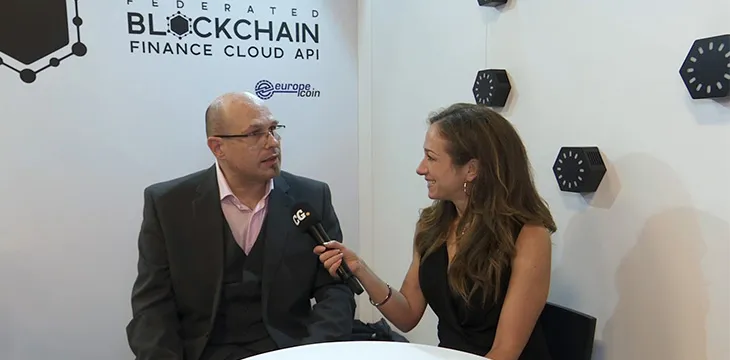|
Getting your Trinity Audio player ready...
|
Europecoin might have started as a scam, but it’s become a respectable new cryptocurrency in the European market thanks to Matthias Klees. The maintainer of Europecoin joined CoinGeek.com’s Becky Liggero to discuss how he turned things around and their new Finance Cloud project.
As with many in the crypto community, Klees first got involved because of someone close in his life. “I got to blockchain because my little brother asked me to repay money he lent to me during the holidays in Bitcoin,” he explained. “And I knew my small brother is an intelligent guy, so I looked into it. I was so excited after half a year, I got into the scam named Europecoin.”
So how did Europecoin go from scam to respectable token? Klees saw an opportunity. “The scam crashed, and was dead for half a year,” he recalls. “That time, I was active with the European Union to work on regulations and things like this. I thought this would be a good vehicle to implement some of my ideas into the European Union and to foster decentralization of powers inside of the society. So I took over this coin and rebooted it, and built this around it.”
Now, he’s introducing the Finance Cloud, which he hopes to be the new personal assistance for financial matters. “The Finance Cloud bridges the gaps between blockchains, so, you can for example, make your smart contracts between coins because we did put features, not into blockchains, but into a protocol, which we call the Finance Cloud API,” Klees explained. “This little device is just a helper for the user to get access to this API, via user interface or via an artificial intelligence voice assistant, like Alexa, for example.”
The device will act as a one stop shop for all financial needs for both consumers and businesses. “Plug this device into your home network, and you have just a dashboard where you can use the app store like you use from your phone,” Klees demonstrated. “You can add your financial services you like. This starts with trading automation, wallets, smart contracting, and for more advanced, or for merchants, point of sales systems. It’s really a universal device to access cryptocurrencies without having to crawl through the web.”
Liggero turned the conversation to the European Union, which Klees has a lot of experience with, and asked how blockchain needs to be approached in the region. “You have to divide the European Union into two parties, because there is the government itself, and there’s the central bank,” he explained. “And they have completely opposite opinions about this whole thing. This makes the government react in an unpredictable and unclear way because they are afraid to say something wrong, which the central bank doesn’t like. They are, in the deep of the heart, much more open to cryptocurrencies than they can say.”
Despite the duality of Europe’s interests, Klees sees a lot of potential in projects that work towards the continent’s interests. “There are many, many projects to adopt cryptocurrencies for government needs in a good way,” he concluded.

 07-08-2025
07-08-2025 





